Session
Eye on Science: Zooming in on the Future
Human-caused climate change represents one of the single most important challenges facing global civilisation in the 21st century. Steering economic policies and institutions towards a low-carbon, resource-efficient pathway remains the defining issue of our time. This is explicitly set out by the Paris Agreement, whose 1.5-2 degree target reflects decades of scientific research, debate and analysis on the drivers and consequences of climate change. Beyond their immediate costs, climate impacts are also intensifying biodiversity loss and ecosystem degradation already occurring across the globe, posing major implications for human welfare and security. However, the gravity of the climate crisis – and the scale of efforts needed for realising a decarbonised future – continues to evoke apprehension and ambivalence, risking passivity and inaction among the greater public. Reviewing the latest scientific findings, this session will provide an opportunity to discuss multi-stakeholder strategies for advancing evidence-based policy solutions to climate change: a necessary first step towards galvanising transformation of our communities, societies and economies.
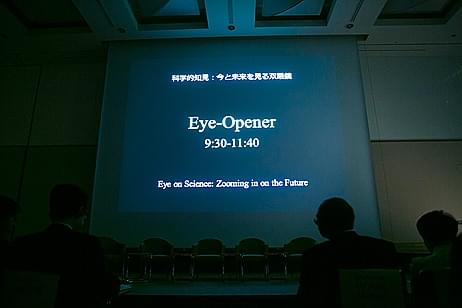
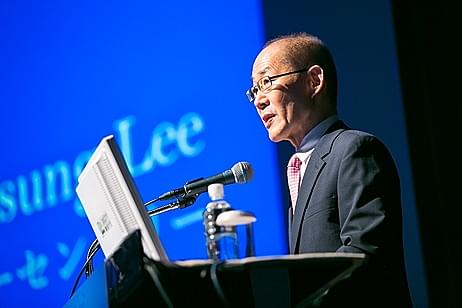
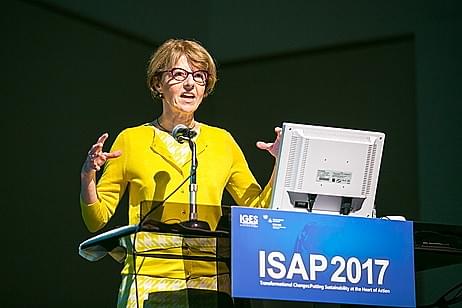
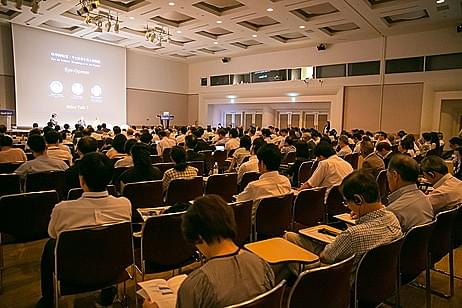
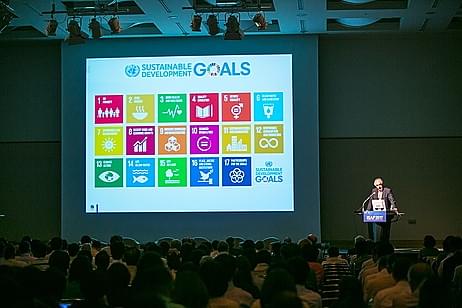
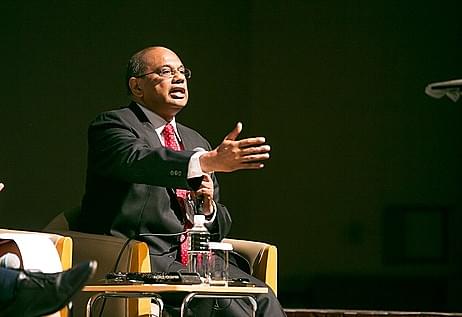
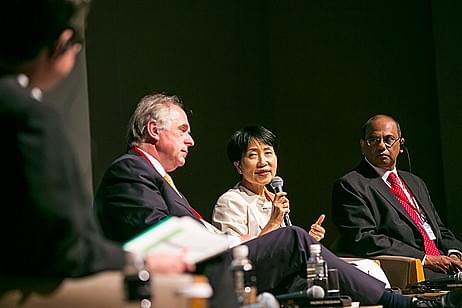
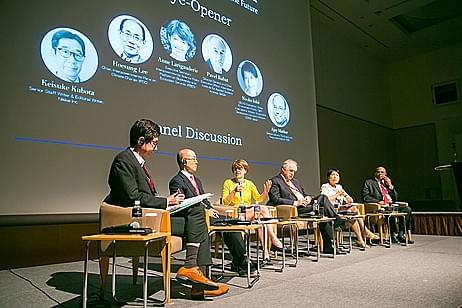
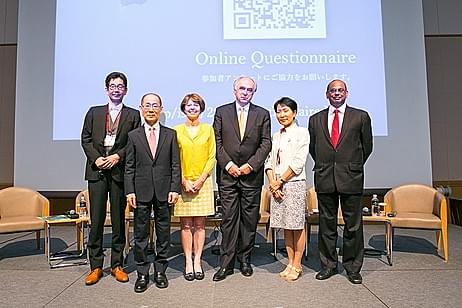
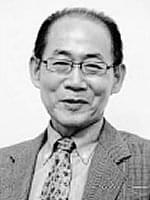
SSS
Hoesung Lee
Chair, Intergovernmental Panel on Climate Change (IPCC)
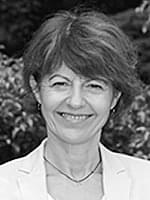
SSS
Anne Larigauderie
Executive Secretary, Intergovernmental Science-Policy Platform on Biodiversity and Ecosystem Services (IPBES)

SSS
Pavel Kabat
Director General and Chief Executive Officer, International Institute for Applied Systems Analysis (IIASA)

SSS
Naoko Ishii
CEO & Chairperson, Global Environment Facility (GEF)/ International Advisor, Sustainable Development Solutions Network (SDSN) Japan
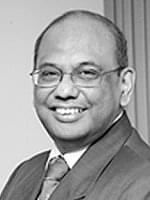
SSS
Ajay Mathur
Director General, The Energy and Resources Institute (TERI)
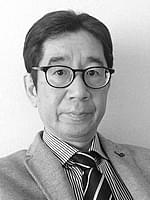
Moderator
Keisuke Kubota
Senior Staff Writer & Editorial Writer, Nikkei Inc.

Moderator
Keisuke Kubota
Senior Staff Writer & Editorial Writer, Nikkei Inc.
Mr. Kubota graduated from Faculty of Science & Engineering at Waseda University, majored in Applied Physics. In 1987, joined NIKKEI as science staff writer, since then has been covering science & technology, environmental policy and disaster reduction policy for more than 30 years. From 2008 until 2009, worked for Disaster Reduction and Human Renovation Institution in Kobe as researcher and currently research fellow for that Institution.

SSS
Hoesung Lee
Chair, Intergovernmental Panel on Climate Change (IPCC)
Dr. Hoesung Lee is Chair of the Intergovernmental Panel on Climate Change (IPCC), elected since October 2015, and Endowed Chair Professor at Korea University Graduate School of Energy and Environment, Seoul, Korea. His research encompasses the economics of climate change, energy and sustainable development. He is a member of the Board of Directors of the Korean Academy of Environmental Sciences, council member of the Global Green Growth Institute, and a member of the Asian Development Bank President’s Advisory Board on Climate Change and Sustainable Development. Lee was the founding president of the Korea Energy Economics Institute -- a government agency for national energy policy development. He was Distinguished Research Fellow at the Korea Environment Institute, senior adviser to the Minister of Energy and Resources and the Minister of Environment, senior fellow at the Korea Development Institute and economist at Exxon Company USA. He served as the president of the International Association for Energy Economics, president of the Korea Resources Economics Association, member of the International Advisory Board of the Battelle-Pacific Northwest National Lab, USA, the Board of Directors of Hyundai Corporation and the Institute for Global Environmental Strategies, Japan. He was Co-Chair of the IPCC Working Group III (the socio-economic dimensions of climate change) for the Second Assessment which provided a scientific basis for the UNFCCC’s Kyoto Protocol. He served as Vice-Chair of IPCC 2008-2015, and lead author and review editor for the various IPCC assessments. He has served on many national and international committees addressing climate change and energy. He received his B.A. from Seoul National University and Ph.D. in economics from Rutgers University, USA.

SSS
Anne Larigauderie
Executive Secretary, Intergovernmental Science-Policy Platform on Biodiversity and Ecosystem Services (IPBES)
Dr. Anne Larigauderie (France) is the first Executive Secretary of IPBES. She was appointed by the Executive Director of UNEP in February 2014.
Anne Larigauderie received her Master’s Degree in plant molecular biology from the University of Toulouse, France, and her PhD in plant ecology, from the Université des Sciences et Techniques du Languedoc and CNRS in Montpellier, France.
As a plant ecologist, she spent ten years performing experimental and field work at different institutions looking, in particular, at how climate change will affect plant physiology and ecology in various contexts: study of gas exchange in first pilot project performing CO2 enrichment of natural ecosystems in the arctic tundra (San Diego State University, USA), of root competition for nutrients in California grasslands (University of California – Davis, USA), of responses of grass species to various scenarios of elevated CO2 and temperature (Duke University, USA), and of the adaptation of dark respiration of alpine plant species to future elevated temperatures (University of Basel,Switzerland).
She is the former Executive Director of DIVERSITAS, the international programme dedicated to biodiversity science, under the auspices of ICSU and UNESCO, which became in January 2015, a component of the new Future Earth programme for global sustainability.
In 2010, she was made ”Chevalier de l’Ordre national de la Légion d’Honneur” by the French Government (Ministre de l’Education et de la Recherche).

SSS
Pavel Kabat
Director General and Chief Executive Officer, International Institute for Applied Systems Analysis (IIASA)
Professor Kabat is director general and chief executive officer of the International Institute for Applied Systems Analysis (IIASA), an independent, international, science, and science-to-policy institute. IIASA has 24 member countries, nearly 400 international staff, and a global research network of around 2,500 scholars and over 600 partner institutions. Professor Kabat is also full professor of Earth System Science at Wageningen University in the Netherlands, founding chair and director of the Royal Dutch Academy of Sciences and Arts Institute for Integrated Research on the Wadden Sea Region (the Wadden Academy), a member of the Leadership Council for the UN Sustainable Development Solutions Network, and co-founder of the high-level Alpbach – Laxenburg Group. The latter brings global leaders from academia, governments, businesses, and civil society together to support and advocate for sustainable transitions and sustainable development.
Trained as a mathematician and hydrologist, Professor Kabat’s almost-30-year research career has covered earth system science and global change, with a specific focus on land-atmosphere interactions, climate hydrology, the water cycle, and water resources.
He is an author and coauthor of over 300 refereed publications (including 9 books), a member of 3 international editorial boards, and (co)editor of numerous special issues of peer-reviewed international journals. He has also contributed as lead author and review editor to the assessment reports of the Intergovernmental Panel on Climate Change, which was a co-recipient of the Nobel Peace Prize in 2007.
Other academic and societal awards and distinctions received by Professor Kabat include the Zayed International Prize for the Environment (which was awarded to all the experts who worked on the Millennium Ecosystem Assessment in 2005), and several honorary degrees, professorships, memberships, and distinguished fellowships internationally.
In 2013, Professor Kabat was honored by Her Majesty Queen Beatrix Knight with the Order of the Netherlands Lion, a national order of chivalry founded in 1815 by King William I, which recognizes excellence in the arts, science, sport, and literature.

SSS
Ajay Mathur
Director General, The Energy and Resources Institute (TERI)
Ajay Mathur is Director General of TERI – The Energy & Resources Institute, and a member of the Prime Minister’s Council on Climate Change.
He was Director General of the Bureau of Energy Efficiency in the Government of India from 2006 till February, 2016, and responsible for bringing energy efficiency into our homes, offices, and factories, through initiatives such as the star labelling programme for appliances, the Energy Conservation Building Code, and the Perform, Achieve and Trade programme for energy-intensive industries.
Dr. Mathur was earlier with TERI from 1986 to 2000, and then headed the Climate Change Team of World Bank in Washington DC. He was President of Suzlon Energy Limited, also headed the interim Secretariat of the Green Climate Fund.
He has been a key Indian climate-change negotiator, and was also the Indian spokesperson at the 2015 climate negotiations at Paris. He is a global leader on technological approaches to address climate change; recently, he joined the global group of industrial, financial and think-tank leaders to co-chair an Energy Transitions Commission which will suggest ways for companies and countries to move towards climate-friendly energy futures.

SSS
Naoko Ishii
CEO & Chairperson, Global Environment Facility (GEF)/ International Advisor, Sustainable Development Solutions Network (SDSN) Japan
Naoko Ishii has served as the CEO and Chairperson for the Global Environment Facility (GEF) since June 2012. Prior to that Ms. Ishii was the Deputy Vice Minister of Finance, where she was responsible for Japan’s international financial and development policies, and for its global policies on environmental issues such as climate change and biodiversity. She led the Japanese delegation at the Transition Committee for designing the Green Climate Fund.
For nearly half of her career, Ms. Ishii has served in international assignments outside of Japan, including at the World Bank and the International Monetary Fund. At the World Bank, Ms. Ishii was the Country Director for Sri Lanka and the Maldives (2006-2010). She also served as the World Bank's country program coordinator for Vietnam (1997-2001), project manager at Harvard Institute for International Development (1996-1997), economist at the International Monetary Fund (1992-1995) working for Africa and Asia, as well as visiting fellow at Center for International Affairs at Harvard University (1984-1985).
Ms. Ishii also taught sustainable development and environment at Keio University. She has published numerous papers and several books, two of which were awarded by Suntory Prize (1990) and Okita Memorial Prize for International Development Research (2004). She is the inaugural recipient of the 2006 Enjoji Jiro Memorial Prize. She holds BA and Ph.D. from University of Tokyo.
